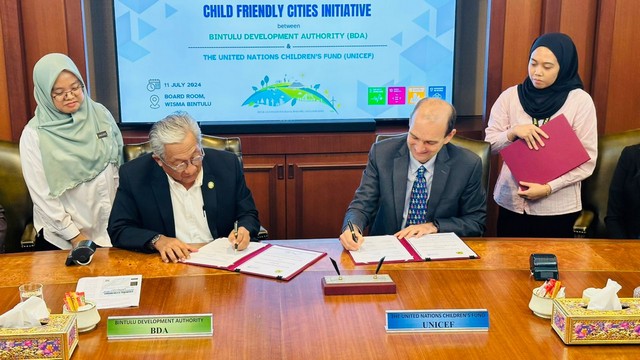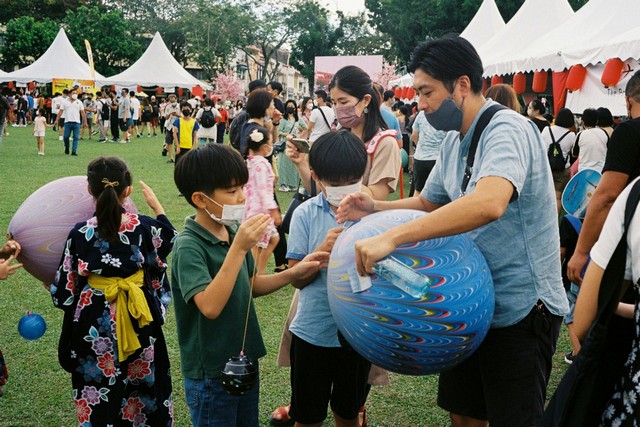Since 2018, the Malaysian branch of the United Nations Children’s Fund (UNICEF) has been advocating for the Child Friendly Cities Initiative (CFCI).
The UNICEF-led initiative aims to support municipal governments in realising the rights of children at the local level, with the UN Convention on the Rights of the Child as its foundation.
It is also a network that gather government and other stakeholders including civil society organisations, the private sector, academia, the media and, most importantly, children themselves who want to make their cities and communities more adaptable to their needs.
To date, Petaling Jaya in Selangor is the only city in Malaysia recognised as a UNICEF Child Friendly City, joining a network of hundreds of Child Friendly Cities in 40 countries worldwide.

In 2023, five other municipalities have signed Memorandums of Understanding (MoUs) with UNICEF to embark on the initiative, all of which are located in Sarawak.
They are Dewan Bandaraya Kuching Utara, Majlis Bandaraya Kuching Selatan, Majlis Perbandaran Padawan, Sibu Municipal Council and Miri City Council.
Then in July 2024, two more municipalities in the State have signed MoUs with UNICEF, namely Majlis Perbandaran Kota Samarahan and Bintulu Development Authority.

“With this development, Sarawak now has the largest number of participating local authorities for CFCI in Malaysia.
“This will provide greater access to realizing the rights of children in line with the United Nations Convention on the Rights of the Child and ensure their involvement in local decision-making,” said Minister for Women, Early Childhood and Community Well-being Development Sarawak YB Dato Sri Hajah Fatimah Abdullah in a statement on the latest MoU signings.
The next step, she explained, involves UNICEF Malaysia commissioning and funding a Situational Analysis Survey to evaluate the preparedness of the respective participating municipalities according to CFCI parameters.
Once the survey is completed, a specific action plan for each of them will be created for them to carry out and comply with before they can achieve recognition as a Child Friendly City. Such recognition can be awarded within two to five years.
“The survey has already been completed for the first five municipalities, and the implementation of action plans is scheduled to begin in the second half of 2024. The assessment for CFCI compliance will commence in April 2026,” she noted.
Dato Sri Hajah Fatimah pointed out that implementing CFCI in Sarawak is expected to include the formation of a child or youth council consisting of individuals aged 18 and below within the jurisdiction of participating municipalities.
The council will guarantee child participation at the local level by ensuring its members’ representation, their opportunity to provide insights on concerns affecting them, and their role in informing their peers regarding the beneficial activities implemented by municipalities.
“This is a significant milestone for Sarawak, as we promote the rights of children through their active participation in the children’s council.
“The inclusive involvement of young people in local decision-making will transform the landscape of age-friendly and liveable cities across the participating municipalities in Sarawak,” she added.
References:
Malaysia. (n.d.). Child Friendly Cities Initiative. https://www.childfriendlycities.org/initiatives/malaysia
Sanders, N.T. (2024, July 12). Sarawak takes the lead in child-friendly cities. New Sarawak Tribune. https://www.newsarawaktribune.com.my/sarawak-takes-the-lead-in-child-friendly-cities/
What is a child friendly city? (n.d.). Child Friendly Cities Initiative. https://www.childfriendlycities.org/what-is-a-child-friendly-city





